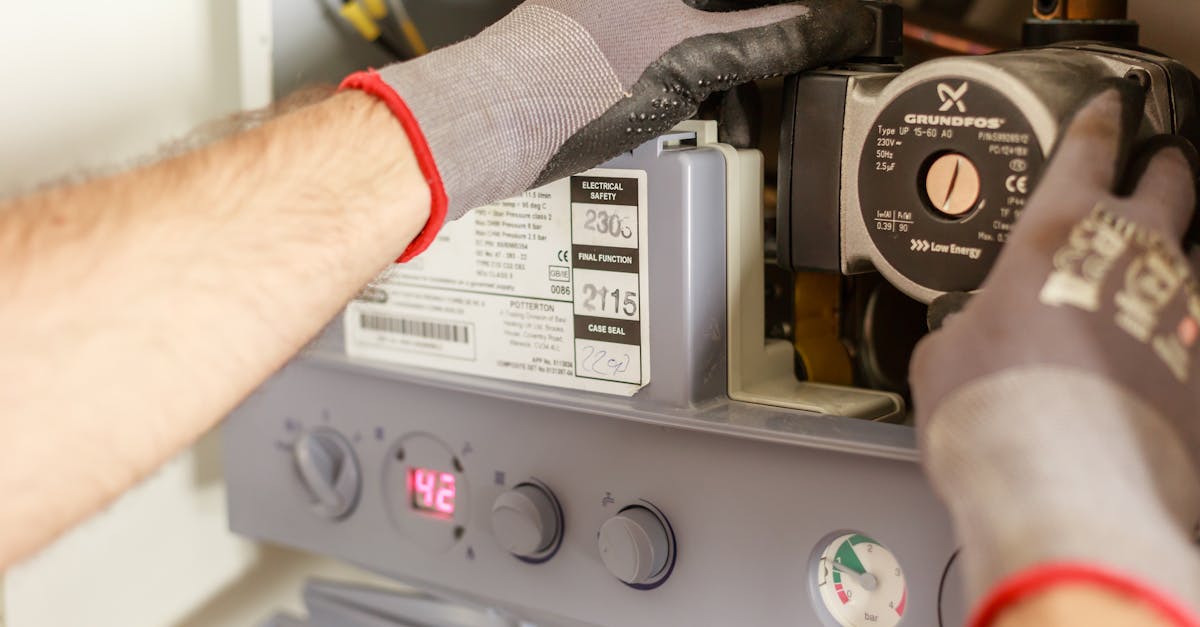Key Takeaways
- Importance of Pool Pumps: Pool pumps are essential for maintaining clean and clear swimming water by facilitating circulation and filtration.
- Common Issues: Most pool owners experience problems with their pumps, notably noisy motors, poor water circulation, and leaks from worn seals or fittings.
- Effective Troubleshooting: Key troubleshooting steps include checking the power supply, inspecting filters, listening for unusual sounds, and examining seals and O-rings to identify and address issues quickly.
- Preventive Maintenance: Regularly cleaning filters, checking seals, and monitoring performance can significantly extend the lifespan of pool pumps and prevent costly repairs.
- Utilizing Technology: Employing mobile workforce management tools and service business software can enhance maintenance tracking and improve overall service efficiency.
- Professional Maintenance: Scheduling routine checks with professionals can help spot potential issues, ensuring that your pool pump remains in optimal condition throughout the season.
Pool pumps play a crucial role in keeping our swimming pools clean and inviting. Did you know that nearly 90% of pool owners encounter pump issues at some point? Understanding how to troubleshoot and repair these common problems can save us time and money while ensuring our backyard oasis remains in top shape.
In this comprehensive guide, we’ll dive into the most frequent pool pump issues and share effective troubleshooting tips. Whether it’s a noisy motor, poor water circulation, or leaks, we’ve got you covered. Let’s empower ourselves with the knowledge to tackle these challenges head-on and keep our pools sparkling all season long.
Overview of Pool Pumps
Pool pumps play a crucial role in maintaining our swimming pools. They circulate water, filter debris, and help chemicals evenly distribute. This process keeps our pools clean and enjoyable. The right pump can make a significant difference in our pool's overall health.
Most pool owners, about 90%, experience issues with their pumps at some point. Understanding how these pumps work makes troubleshooting much easier. We can identify common problems and tackle them head-on.
Types of Pool Pumps
- Single-Speed Pumps: These operate at one constant speed. They are straightforward and generally less expensive. However, they can be less energy-efficient.
- Two-Speed Pumps: These offer a low and high-speed setting. This flexibility allows for more efficient operation while still delivering powerful performance when needed.
- Variable-Speed Pumps: These represent the latest technology. They allow us to customize the pump speed based on specific tasks. This control leads to significant energy savings.
Common Issues
- Noisy Motors: A loud pump can disrupt our serenity. We often find that bearings cause this issue. Regular maintenance can keep these components running smoothly.
- Poor Water Circulation: This problem often stems from clogged filters or obstructions in the plumbing. We can check for blockages to restore proper flow.
- Leaks: Leaks can occur in various areas. Loose fittings or cracks can be culprits. Inspecting these areas regularly helps us catch leaks early.
Troubleshooting Tips
- Check Power Supply: Always start with the power source. Verify the unit is plugged in and receiving power.
- Inspect the Filter: A dirty filter hampers performance. Clean or replace the filter as needed to improve efficiency.
- Listen for Unusual Sounds: Strange noises can indicate mechanical issues. Addressing these promptly reduces the chance of more extensive repairs.
- Examine Seals and O-rings: Worn-out seals lead to leaks. Regularly checking these components prevents minor leaks from becoming major issues.
- Utilize Mobile Workforce Management Tools: Consider mobile apps that help us track maintenance schedules and repairs. These tools can enhance our service management.
Preventive Maintenance
We should adopt a routine for our pool pumps. Simple actions like cleaning filters, checking seals, and monitoring performance can prevent many issues. Embracing such habits not only prolongs pump lifespan but also keeps our pools sparkling clean.
In our pursuit of effective maintenance, we can lean on resources like service business software. These tools streamline operations, making it easier to manage our pool care processes. By using route management software or job scheduling tools for technicians, we improve our overall service efficiency.
Common Issues with Pool Pumps
Pool pumps, like any machinery, can face specific challenges. Understanding these common issues helps us tackle them effectively.
Clogged Filters
Clogged filters can hinder water flow, leading to poor circulation. Often, debris such as leaves, dirt, or algae fills the filter, reducing its effectiveness. We should check filters monthly, especially during heavy use. For example, if we notice the pump's pressure gauge rises above normal, it signals filtration problems. Cleaning or replacing the filter fixes this issue promptly. Remember, regular maintenance keeps water clear and enjoyable. Did you notice how clear your pool is after a good filter change? It feels like a refreshing splash on a hot day!
Leaking Seals
Leaking seals can create problems, both for the pump and our finances. If we spot water pooling around the pump, we might face a seal issue. Common culprits include wear and tear or improper installation. Replacing worn seals can often restore function. When addressing this issue, we recommend shutting off the pump first. It’s the best way to avoid a mini pool party in our pump area! Keeping an eye on these seals can save us from larger problems down the road.
Troubleshooting Tips
Troubleshooting pool pump issues can seem challenging, but we can tackle them together. Here are some practical steps to diagnose and repair common problems.
Diagnosing Pool Pump Problems
Diagnosing problems starts with observation. We check for unusual sounds since a noisy motor often signals internal issues. Next, we monitor water flow. If it's weak, inspect the filter. A clogged filter restricts circulation, requiring monthly maintenance for optimal performance. We also examine the seals. Water pooling around the pump hints at leaks, caused by wear and tear or poor installation. Finally, we assess power supply connections. Issues with electrical components might prevent the pump from working.
Step-by-Step Repair Guide
Repairing pool pumps involves straightforward steps. First, turn the power off for safety. Next, we clean or replace the filter if it's clogged. If seals are leaking, we can replace them. Remove old seals carefully and install new ones—consult the manufacturer's specifications for details. For noisy motors, check if debris has accumulated around the motor. Clear it away to restore normal functioning. If the pump doesn't turn on, test the circuit breaker or fuse. Always document repairs in a service log to notice trends, which helps in maintenance planning.
Maintenance Best Practices
Regular maintenance keeps pool pumps running smoothly and can prevent common issues. We recommend implementing the following practices to extend the life of your pump.
- Check for Clogs: Clogs can wreak havoc on water flow. We should inspect filters each month. Cleaning or replacing filters promptly prevents reduced circulation.
- Inspect Seals and O-Rings: Worn seals or O-rings create leaks. We need to examine them regularly, as replacing them early can save bigger problems down the line.
- Monitor Noise Levels: Unusual sounds may signal trouble. Observing any changes in noise helps us identify issues before they escalate. If we notice loud clanks or whirrs, it’s time to investigate.
- Clean the Pump Area: Debris around the pump can cause overheating. Regularly clearing the area ensures proper airflow, contributing to better performance.
- Schedule Regular Professional Maintenance: Engaging a professional for routine checks can help spot potential issues. Collaborating with maintenance services boosts pump longevity.
- Use Field Service Management Software: Utilizing service business software helps track maintenance schedules. Mobile workforce management tools ensure timely follow-ups and efficient service.
- Opt for Technician Scheduling Tools: We can schedule maintenance appointments easily using technician scheduling tools. Prioritizing these appointments facilitates timely upkeep.
- Document Repairs in a Log: Keeping a service log lets us track repairs and maintenance history. This practice helps us recognize patterns and plan future actions accordingly.
- Engage with Customer Service Solutions: Enhancing customer engagement through service business automation builds trust. Regular check-ins keep us informed about our pump's condition.
- Utilize Service Dispatch Software: Service dispatch software allows for better organization. It optimizes technician routes, saving time and effort during maintenance calls.
Conclusion
Repairing pool pumps doesn’t have to be daunting. With the right knowledge and proactive maintenance, we can tackle common issues effectively. By staying vigilant and addressing problems early, we can ensure our pool pumps run smoothly and efficiently.
Utilizing the troubleshooting tips and best practices outlined in this guide empowers us to keep our pools in top shape. Regular checks and timely repairs not only enhance the longevity of our equipment but also contribute to a cleaner and healthier swimming environment.
Let’s take charge of our pool maintenance and enjoy the refreshing benefits of a well-functioning pool pump.
Frequently Asked Questions
What is the role of a pool pump?
A pool pump circulates water in the pool, filters out debris, and distributes chemicals. This process helps maintain water clarity and overall pool health, making it an essential component for any swimming pool.
What are the common types of pool pumps?
There are three main types of pool pumps: single-speed, two-speed, and variable-speed. Each type has distinct advantages and varying levels of energy efficiency, allowing pool owners to choose one that best fits their needs and budget.
What are the common problems with pool pumps?
Common issues include noisy motors, poor water circulation, and leaks. These problems can arise from various factors, like clogged filters, worn seals, or electrical issues, making it important for owners to regularly inspect and maintain their pumps.
How can I troubleshoot a noisy pool pump?
To troubleshoot a noisy pool pump, first, turn off the power and check for debris around the motor. Additionally, inspect the filter for clogs and examine the pump's mounts. If the noise persists, it may indicate a mechanical issue that may require professional assistance.
What maintenance does a pool pump need?
Regular maintenance includes checking for clogs, inspecting seals and O-rings, monitoring noise levels, and cleaning the pump area. Scheduling regular professional maintenance can also help extend the pump's lifespan and improve performance.
How often should I check my pool pump?
It's recommended to check your pool pump at least once a month. Routine checks can help identify potential issues early, ensuring optimal performance and prolonging the life of your pump.
What should I do if my pool pump is leaking?
If your pool pump is leaking, turn off the power immediately. Inspect the seals and O-rings for wear or damage and tighten any loose connections. If the leak persists, it may require replacement parts or professional help.
How can software help with pool maintenance?
Using field service management software can streamline tracking maintenance schedules, facilitating timely upkeep and better organization. It can also assist in scheduling technician visits and documenting repairs for future reference.






